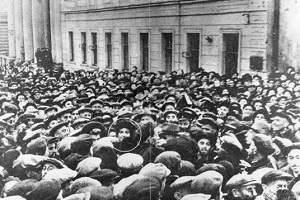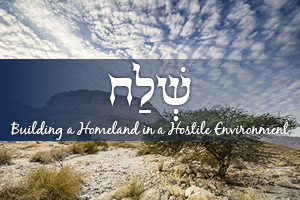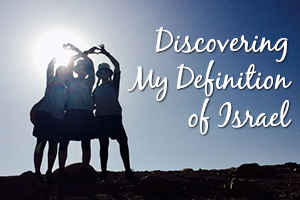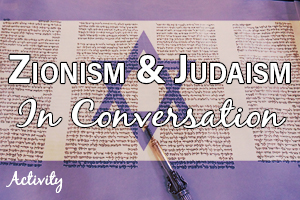Are You Committed?
By Alden Tabac
People around the world have been dealing with the difficulties of the COVID-19 pandemic as well as recent protests and riots. Every society has faced its own challenges. The Jewish world, perhaps in ways unique to other communities, has been forced to decide where their personal alliances lie. Where one stands on the issue of the day becomes the measuring stick for who they are as a person, and bias and judgment abound in each and every place affected by today’s chaos.
Synagogues are closed or just reopening now, Jewish schools are either online or shut down, and learning and cultural events have not been held in person for months on end. While the state of the world has weakened some, there are others who have found ways to direct their passion ignited by a desire to make a difference amidst a world gone mad. Some turn to universal avenues of activism, for the sake of social justice for all, while more and more seem to be seeking to reconnect with that element of belonging that comforts the soul: the Jew within.
While people are shut in, isolated, and forced to examine how they spend their time and energy, many are looking to make their connection to Judaism even stronger despite numerous obstacles in the way of doing so. I, for one, am taking advantage of the time gained from the lockdown to advance myself as a Jew by learning more Torah. Interestingly enough, the time of the lockdown coincides with the Torah portions that describe the Jews wandering in the desert towards their promised homeland.
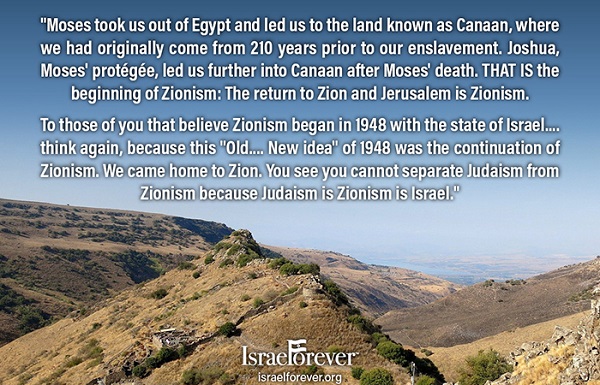
Just like our ancestors in the Sinai Desert, we find ourselves in a time of uncertainty as we look ahead to returning to normality. Similarly, just like our ancestors in the Sinai, Israel should be on our minds as we wander through our own confusing desert.
After leaving Egypt, the Israelites feared for their future with some even demanding a return to Egypt to restart lives of slavery. G-d later decided to only allow the new generation to enter the land, so any of those who left Egypt above the age of twenty perished in the desert. Why, then, did millions of Jews wander in the desert for decades? I speculate it is because they believed that the lives of their descendants in the land of Israel would be worth the forty-year struggle. Why else would a merciful G-d put them through forty difficult years? Looking at the role Israel has since played in Jewish life, I think it is safe to say that the struggle was well worth it.
In 1948, the Jewish people regained control of the Promised Land once again. After millennia of hopes and dreams, any Jew who desired could live in Israel. The State of Israel has provided and continues to provide sanctuary for Jews who faced far greater tribulations than the mere inconveniences we are experiencing in the midst of this pandemic.
Holocaust survivors made Aliyah en masse. Iranian Jews escaped to Israel following the Islamic revolution. Jews oppressed under the iron fist of the Soviet Union found safety in Israel. Ethiopian Jews risked their lives in dangerous journeys to reach the Holy Land. More recently, Israel has become a new home for thousands of Jews from France who fled from antisemitic violence. Israel is indeed the safe haven that its visionaries foresaw, but also a place for Jewish spirit to blossom even for the millions of citizens who did not have to run from persecution.
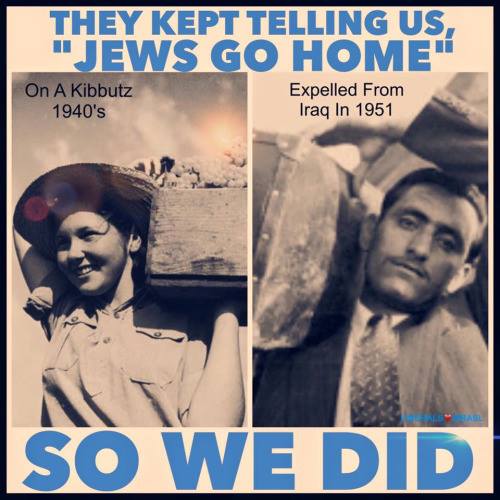
Today’s Jews come from those who spent years in the desert for the good of their descendants, and we are all responsible for one another regardless of how well we know each other or where we live. It is an insult to our ancestors – from those who wandered through the desert, to the politicians and activists who made the modern State of Israel a reality, to the soldiers who fight and often sacrifice their lives to defend the Jewish state – if we do not regularly think about, discuss, represent, and advocate for Israel.
The response to events in North America has revealed that a large percentage of Jews are not sufficiently capable of balancing their identity as Jews and being openly pro-Israel in the face of the Leftist trend. Jews, unfortunately, are not considered a relevant social element deserving the same respect as other minorities. Those concerned with Israel are accused of dual loyalty. Those who are against the Black Lives Matter movement because of their antisemitic stance but who support rights for blacks, Arabs, Muslims, and everyone else are maligned, often in cowardice from behind a screen.
A variety of Jewish organizations and schools released statements in response to the killing of George Floyd and the ensuing riots. Meanwhile, several of those same groups have historically been silent following terror attacks in Israel. On a smaller level, a good deal of my Jewish contacts on social media posted messages in condemnation of racism, prejudice, and bigotry these past weeks. After sometimes fatal attacks on Israeli citizens from opposing nations and terrorists, however, messages from these same people are nowhere to be found.
Why would a Jew stay silent after members of his own nation in his eternal homeland come under attack, but speak up in response to an attack on a member of another group? Is the life of one human being more valuable than that of another simply by virtue of the color of his skin?
Unfortunately, there is little moral equivalency when we are trying to be accepted and join the chorus of ideals and values we align ourselves with most. And Jews too often will align themselves with others before aligning themselves with their fellow Jews - especially those in Israel. There is an ongoing debate as to whether these Jewish groups and individuals value other commitments which extend beyond their religious identity. And yet, what is too easily forgotten is that regardless of a Jew’s level of observance, they are as ‘Jewish’ as any other Jew and there is nothing that can be done to change that.
The wide spectrum of religious, cultural, ethnic, and national aspects which appeal to Jews of different backgrounds is astounding and dynamic, and can even be inspiring in some ways. However, we have reached such division that an American who identifies more as an American than as a Jew speaks out against violence to other groups in the USA but not against violence to his own people for the “crime” of being in Israel - something which is so demonized by mainstream media that it has resulted in persuading the public to accept falsehoods as truths.
Perhaps it is more fashionable to voice an opinion against events in one’s country of residence than to impose judgment on a country where one does not live, but imposing double standards on the Jewish state is precisely what so many people do on a regular basis. One who considers himself a committed Jew should always be looking out for Israel, which can include legitimate debate and criticism of policy or even cultural elements. But a committed Jew must also be looking out for ways to take action and use their voice against the delegitimization of Jewish rights and calls for the destruction of the Jewish state.
It is imperative that we think about Israel as a land that belongs to every Jew no matter where they live. If Israel - Jerusalem, Tzion, the land of our ancestors who shaped us into one people and with whom we inherited the gift of the land as depicted in the Tanakh and in our prayers - is insignificant to a Jew, Judaism, Jewish existence, Jewish history, identity and pride must be insignificant to this Jew as well. The two entities of Judaism and Israel are intertwined.
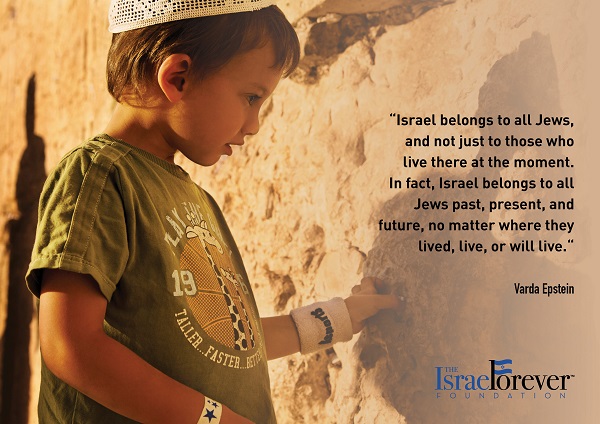
Since the birth of our nation over 3000 years ago, the Land of Israel has played an integral part in Jewish ritual practice. One does not have to support the state to acknowledge this fact. We face Jerusalem when we pray, and we always keep a reminder of the Temple as a part of our homes, our hearts, and even our wedding ceremonies. Jews and non-Jews alike read about the land being gifted to the Children of Israel in the Tanakh, the Torah, the New Testament, and the Koran.
The faithful anxiously await redemption with the coming of the Messiah, which will result in the gathering of all diaspora Jews to Israel. Even if you do not believe in these concepts, there is something powerful in the intergenerational distribution of these traditions that should inspire every Jew and encourage them to get involved.
As Jews, the constant attacks on Israel, physical or otherwise, should be personal attacks on each one of us. It is a known fact that Israel’s opponents attack because they seek the destruction of this Jewish, foreign entity among them. Just as with all Jew haters in the centuries before the group called Palestinians was invented, enemies take issue with Israel’s Jewish nature. They lie about apartheid and racism among Jews and Israelis all while committing the most heinous of human violations against women and children through their teachings of hate. How can you be a committed Jew by ignoring the multitude of attacks on an entity simply for the fact that it, just like you, is Jewish?
Although Israel may be far away geographically, it can easily be the country closest to our hearts. Of course taking an interest in domestic issues is important. In fact, Jewish concepts are often used to guide the efforts even of those who wrongly use them. This can be seen in recent use of the term ‘Tikkun Olam’ (repairing the world) to associate with anti-Israel movements. This only fosters more antisemitism.
Values may simply not be enough. Even if Jewish religion is not an aspect of one’s life, the values of justice, equality and freedom for Jews everywhere in the world should be an essential component of the individual and collective commitment to every fellow Jew. Even moreso, these ideas should be used to reinforce that our ancestral right to our homeland be protected and defended.
In truth, staying informed about issues relating to Israel makes one a greater citizen of the world. Given the lies that the news media routinely spreads about the country and its citizens, knowing the facts about Israel is important for anyone who values truth. Furthermore, while countries in the diaspora may not always act favourably towards their Jews, Israel will always serve as a place to live in safety at any time regardless of the situation in one’s home country.
The increase in antisemitic acts and incitement to harm or kill Jews in North America and around the world in recent years points to a dangerous trend in Jew hatred in countries which once served as beacons of hope for Jewish immigrants, or which more than once witnessed the destruction of Jewish life on their soil. But what does that mean for the Jew who does not experience this hatred himself? Or who knows no one in Israel? Or who cannot sufficiently understand the intricacies of the conflict to know what to believe? We cannot all know enough to fight the haters whose lies have become stronger than truth, and whose numbers outweigh ours by an immense scale.
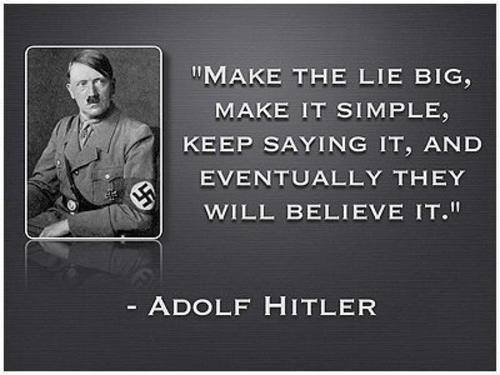
It is difficult to keep up to date with the news in Israel as the mainstream media in North America is reluctant to report on it fairly. Unfortunately, the vast majority of Israel-related news in North America consists of hand-picked events that are slanted to make the country look like an evil and oppressive state. Thankfully, there are several Israeli news outlets which report in English that are easy to find, such as the Jerusalem Post, Ynet, i24, and the Times of Israel.
There are countless Facebook groups and pages that people can join or follow to keep up to date on current events. Those with family or friends in Israel can more easily discuss issues that others find challenging. Yet, even for those “in the know,” it can be daunting for some who fear raising the topic of Israel even among their own community members, or who are hesitant to speak out against an insult or lie about Jews or Israel due to the feeling that people refuse to hear anything that opposes their own political agenda. But it is these conversations that need to be had, and there is a wide variety of literature and programming that diaspora Jews can take advantage of to educate themselves.
Every Jew in the diaspora should receive an education about Israel that warrants caring about the country of our ancestry in a way that helps them feel a part of something bigger than themselves. Through day schools, synagogues, youth programs, and discussion groups, every effort must be made to help them understand that a commitment to Jewish existence and Jewish rights is part and parcel of having a Jewish identity - no matter how that identity is shaped or defined. Each person has that right, given by Hashem, and fulfilled by our willingness to strive for unity over uniformity.
Not everybody knows where to look for engagement other than classes or initiatives from their local organization or congregation. If, for years, there are none that you have been involved with, where would you turn? Unfortunately, this is a question that many are forced to ask themselves when confronted with the divisive and offensive question: are you more a Jew or an American/ Canadian/ Englishman/ Frenchman/ Pole/ Ukranian/ Italian…?
There is, sadly, a significant demographic of Jews in the world who are not involved in any form of Jewish connection or learning, and astounding statistics emerge each year which perhaps exacerbate feelings of distance, disconnect, and the lack of consideration Israel receives in comparison to other topics that dominate our lives.
For those of us who do not fall into this category, it is our duty to reach out to fellow Jews and find ways to inspire them by teaching them about their faith and Promised Land. We can learn from the tradition of kiruv, helping to bring our fellow Jew closer to G-d - much like Israel Forever does by bringing Jews together as Virtual Citizens of Israel through the connection to our collective identity as the People of Israel. Getting a friend engaged with Israel could very well light the spark that ignites the fire of Judaism in their heart.
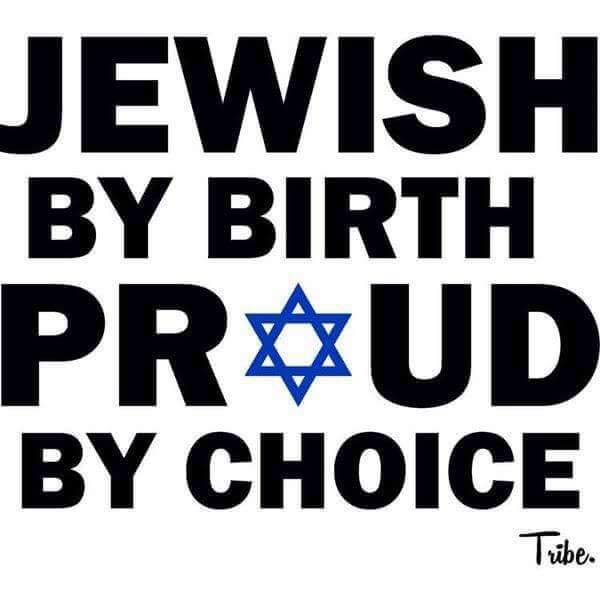
Life will eventually get back to “normal” for us, but not the same normal that we knew before. As Jews, perhaps we will appreciate praying in a quorum far more than we used to. Aside from the spiritual benefits of praying together, the sense of community and the social aspects that we enjoy at synagogue are basic parts of Jewish life that we will not take for granted anymore.
For people like me who had plans to be in Israel this summer, the milk and honey of the land will taste far sweeter when the gates finally open for travellers. Passover Seders will be more meaningful next year when we will be able to celebrate with our family members again. The ten commandments will resonate at an even deeper level when we can hear them being recited in person once again.
Those not engaged in ritual observances should also take advantage of this time to reflect. Just as some observant Jews have found ways to deepen their connection to Judaism by focusing on the individual and home aspects of their faith, any Jew can take this time to think about what they took for granted before the world drastically changed. Regardless of background, everyone has the power to think deeply and emerge as a more grateful person when this is all said and done. I, for one, will be even more grateful for Israel.

Recommended for you:
About the Author


